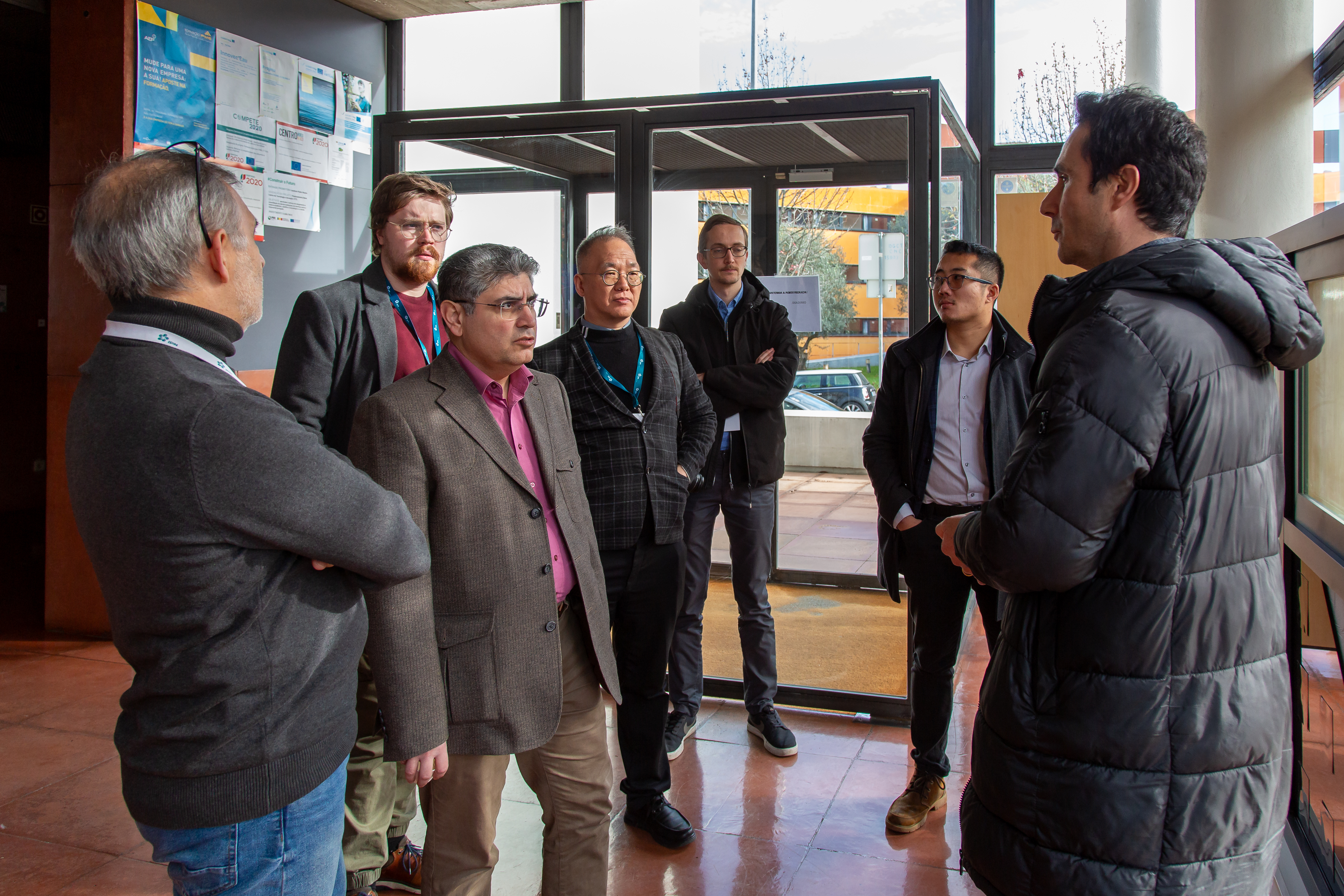Instituto Pedro Nunes develops a method to optimise glass recycling in photovoltaic panels
General
RTD Laboratories
Clique aqui para a versão em português.
Instituto Pedro Nunes (IPN) is part of the APOLLO project - A Proactive Approach to the Recovery and Recycling of Photovoltaic Modules, an initiative funded by the European Union with an investment of over 5.3 million euros. This project aims to transform photovoltaic panel recycling practices, contributing to a more sustainable future in line with the principles of the circular economy.
.jpg)
Made up of a consortium of 18 partners from 8 European countries, including universities, technology and innovation centres and companies, APOLLO is part of the European Commission's Climate, Energy and Mobility programme. The central aim is to redefine solar panel recycling processes, promoting more efficient, automated and economically viable methods.
As an active member of this consortium, IPN is playing a crucial role in developing a scalable method for assessing the PV panel composition in the future recycling line. This work builds on the institute's extensive experience in material characterisation testing, allowing it to evaluate and track the various types of photovoltaic panels at the end of their life before they enter the recycling process. The focus is maximising the recovery of valuable materials, including silver and silicon, this last one with an expected efficiency of more than 90% by mass.
.jpg)
.jpg)
The pilot recycling line is expected to process 40 tonnes of photovoltaic waste, resulting in the production of 1 tonne of remanufactured silicon and 30 new solar modules. With the potential to increase the economic value recovered in recycling processes by 315 per cent, APOLLO reinforces Europe's commitment to sustainability in the renewable energy sector.
On 10 and 11 December, IPN hosted the third working meeting of the project's partners in Coimbra, to discuss the work carried out so far and align strategies for the next steps in this initiative.
The consortium includes leading organisations such as Fraunhofer Gesellschaft zur Foerderung der Angewandten Forschung e.V. (Germany), Kalyon Güneş Teknolojileri Üretim A.Ş. (Turkey), Pilkington Technology Management Ltd (United Kingdom), Metran Rohstoff-Aufbereitungs GmbH (Austria), Minespider Germany Gmbh (Germany), EDP CNET (Portugal), University of Leicester (United Kingdom), Instituto Pedro Nunes (Portugal), Solaveni Gmbh (Germany), Sintef As (Norway), ODTÜ Güneş Enerjisi Uygulama ve Araştırma Merkezi (Turkey), University of Glasgow (United Kingdom), Norges Teknisk-Naturvitenskapelige Universitet - NTNU (Norway), Swansea University (United Kingdom), Fenix TNT SRO (Czech Republic), Saule Spółka Akcyjna (Poland), Bittner Umwelttechnik Gmbh (Germany) and École Polytechnique Fédérale de Lausanne (Switzerland).
.jpg)

Instituto Pedro Nunes (IPN) is part of the APOLLO project - A Proactive Approach to the Recovery and Recycling of Photovoltaic Modules, an initiative funded by the European Union with an investment of over 5.3 million euros. This project aims to transform photovoltaic panel recycling practices, contributing to a more sustainable future in line with the principles of the circular economy.
.jpg)
Made up of a consortium of 18 partners from 8 European countries, including universities, technology and innovation centres and companies, APOLLO is part of the European Commission's Climate, Energy and Mobility programme. The central aim is to redefine solar panel recycling processes, promoting more efficient, automated and economically viable methods.
As an active member of this consortium, IPN is playing a crucial role in developing a scalable method for assessing the PV panel composition in the future recycling line. This work builds on the institute's extensive experience in material characterisation testing, allowing it to evaluate and track the various types of photovoltaic panels at the end of their life before they enter the recycling process. The focus is maximising the recovery of valuable materials, including silver and silicon, this last one with an expected efficiency of more than 90% by mass.
.jpg)
.jpg)
The pilot recycling line is expected to process 40 tonnes of photovoltaic waste, resulting in the production of 1 tonne of remanufactured silicon and 30 new solar modules. With the potential to increase the economic value recovered in recycling processes by 315 per cent, APOLLO reinforces Europe's commitment to sustainability in the renewable energy sector.
On 10 and 11 December, IPN hosted the third working meeting of the project's partners in Coimbra, to discuss the work carried out so far and align strategies for the next steps in this initiative.
The consortium includes leading organisations such as Fraunhofer Gesellschaft zur Foerderung der Angewandten Forschung e.V. (Germany), Kalyon Güneş Teknolojileri Üretim A.Ş. (Turkey), Pilkington Technology Management Ltd (United Kingdom), Metran Rohstoff-Aufbereitungs GmbH (Austria), Minespider Germany Gmbh (Germany), EDP CNET (Portugal), University of Leicester (United Kingdom), Instituto Pedro Nunes (Portugal), Solaveni Gmbh (Germany), Sintef As (Norway), ODTÜ Güneş Enerjisi Uygulama ve Araştırma Merkezi (Turkey), University of Glasgow (United Kingdom), Norges Teknisk-Naturvitenskapelige Universitet - NTNU (Norway), Swansea University (United Kingdom), Fenix TNT SRO (Czech Republic), Saule Spółka Akcyjna (Poland), Bittner Umwelttechnik Gmbh (Germany) and École Polytechnique Fédérale de Lausanne (Switzerland).
.jpg)





